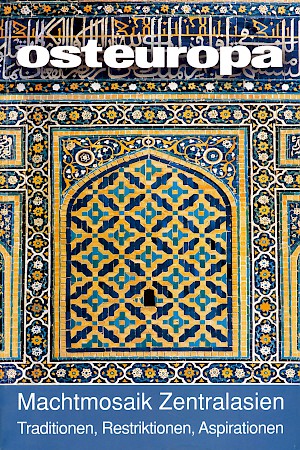Tradition, Revolution, Adaptation
The Cultural Sovietisation of Central Asia
Deutsche Fassung
Abstract
Soviet cultural policy in Central Asia was subjected to significant changes over the decades. In the 1920s, an emancipated cultural approach dominated, combining socialist and national projects as well as the modernisation efforts of the Central Asian intelligentsia. The Stalinist cultural revolution interrupted this development and replaced cultural pluralism with Soviet paternalism, standardisation and an emphasis on folklore. Under the Soviet surface, however, elements of an original Central Asian everyday culture, traditional values, customs and rituals were able to maintain themselves right up to the collapse of the Soviet Union.
(Osteuropa 8-9/2007, pp. 99–120)



